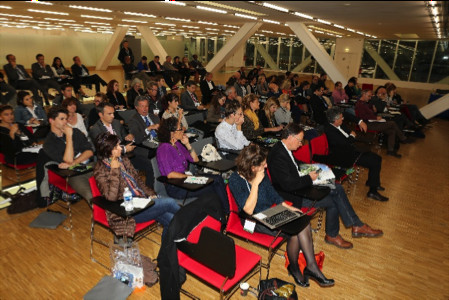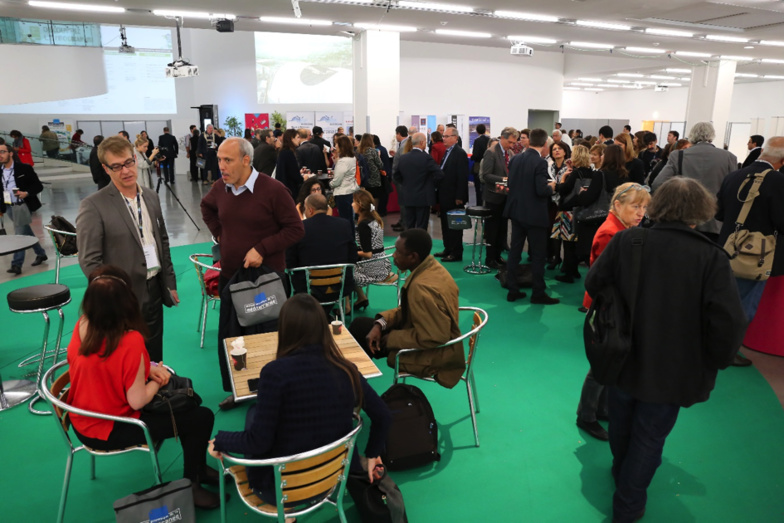FOCUS ON: A four-day tribute to cities and territories
This year’s Mediterranean Economic Week featured a comprehensive programme with encounters, discussion, exchange and the sharing of experience. It was a resounding success for all the Mediterranean stakeholders represented and helped increase the influence of the Mediterranean Basin.

From 4 to 7 November, around 2,500 participants came together for the Mediterranean Economic Week, including stakeholders in Mediterranean cooperation, experts, entrepreneurs, elected officials and representatives from civil society, local, national and international institutions and universities. It was the opportunity for discussion around this year’s theme, “Cities and Territories, drivers of economic development in the Mediterranean”.
This 9th edition was also the chance for businesses and organisations working in the Mediterranean to share feedback from their experiences. Development agencies, innovative businesses, project developers, experts in this field and more were all able to share their experience to drive forward the development of Mediterranean cities and to promote the region.
2015 key figures:
- 2,500 participants
- 35 events
- Over 17 countries represented
- Around 300 speakers
- 7 ministers took part in discussions
- Over 60 local, national and international journalists covered the event
These events brought together local and national elected officials, who always play a key role in cooperation with countries around the Mediterranean.
The following ministers and leading international figures were also in attendance:
- Patrick Barardi, Director of Thassalia;
- Assia Bensalah Alaoui, Co-President of OCEMO and Ambassador-at-Large of His Majesty Mohamed VI, King of Morocco;
- Luc Bouvet, Regional Director, Eiffage Méditerranée;
- Helena Dalli, Minister of Social Dialogue, Consumer Affairs and Civil Liberties, Malta;
- Philippe De Fontaine-Vive, Co-President of OCEMO and Honorary Vice-President of the European Investment Bank;
- Kamel Jendoubi, Government Minister, responsible for relations with constitutional bodies and Tunisian civil society;
- Zied Ladhari, Minister of Vocational Training and Employment, Tunisia;
- Monhamed Laïd Benamor, Chairman of the Algerian Chamber of Commerce and Industry in France (CACI France);
- Alain Le Roy, Secretary General of the European External Action Service;
- Henri Malosse, Former Chairman of the European Economic and Social Committee;
- Mohamed Mebarki, Ministry of Training and Professional Education, Algeria;
- Driss Merroun, Minister of Urbanism and National L and Settlement, Morocco;
- Carlos Moreno, scientist specialised in Human Smart Cities;
- Cyril Roger, Senior Executive, Vice-President for Europe, the Altran Group;
- Nicolas Schmit, Minister of Labour, Employment and the Social and Solidarity Economy, Luxembourg;
- Fathallah Sijilmassi, Secretary General, Union for the Mediterranean;
- Abdelmadjid Tebboune, Minister for Housing, Urban Development and Cities, Algeria.
This year, the Mediterranean Economic Week once again brought together major INTERNATIONAL INSTITUTIONS, including the European Investment Bank, the French Development Agency (AFD), the Caisse des Dépôts et des Consignations, the European Commission, the United Nations, the World Bank and the Union for the Mediterranean, whose representatives offered valuable insight over the four days.
This event was once again the opportunity for encounters and discussion around institutional, professional and B to B meetings, demonstrating that the Mediterranean Economic Week is growing in prominence and has become a major event for all Mediterranean stakeholders.
The Mediterranean Economic Week is an “advanced platform for projecting French cooperation in the Mediterranean. It is the backdrop for discussion on new concepts concerning urban and collective intelligence, converging interests, partnerships and good governance, which will facilitate transition across the Mediterranean,” explains Pierre Massis, Executive Director of OCEMO.
He confirms that this year’s event offered real answers to local needs by sharing model examples, whether for local partners, more centralised partners or even international organisations.
As he concluded in the opening session, “The Mediterranean Economic Week could be summarised by actions that promote hope, dialogue and sharing, with the goal of optimising funding and promoting projects and technologies to help citizens become stakeholders who are involved, consulted and connected to their region.”




